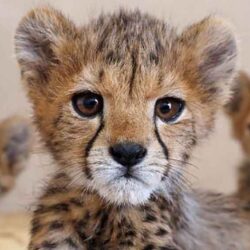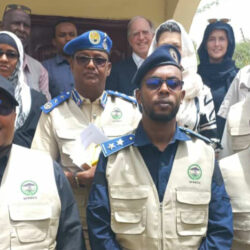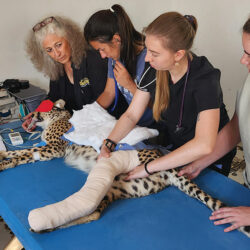Confiscation Season Begins in Somaliland
-

- by Melanie Lippert November 8, 2021

As winter approaches in Somaliland, and the nights become cooler and darker, cheetah breeding season begins—bringing a newfound hope for its declining populations. Yet, with new life, also comes danger and vulnerability. The most notable threat being humans, specifically people who steal cheetah cubs from the wild as a means of coping with predation or to sell as illegal pets.
Our first confiscation of the year consisted of four cubs—two males and two females that were possibly just three weeks old upon arrival at CCF Somaliland. One of the females, named Pacha, is the runt of the group, weighing almost two times less than the others when she arrived. Because of their age, their diet consisted mainly of milk until they were in our care for a few weeks and could be introduced to meat. Although they are not the oldest cubs currently in our care, they are by far the biggest—learning and growing more and more each day.

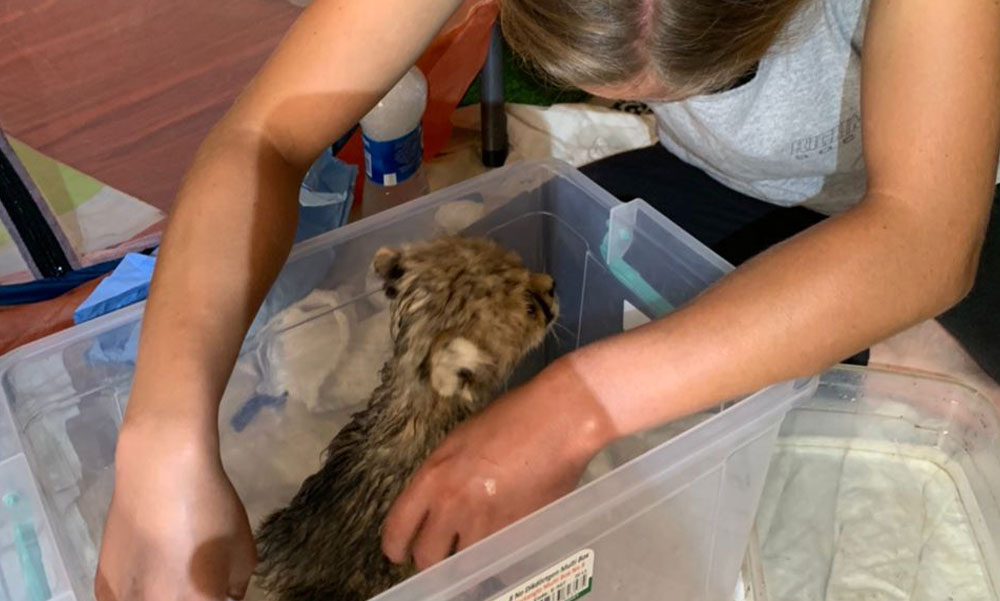
The second group that arrived at CCF Somaliland this year is a coalition of siblings—two females and one male. They arrived at approximately six weeks old with substantial skin and parasitic maladies. After a thorough cleaning and medical exam, the cubs were up on their feet, sprinting after each other. However, because they were stolen from their mother at such a young age, they did not receive the nutrition or diet needed to keep their bodies healthy. Thus, the cubs had serious digestion issues, including undigested meat in their feces and impaction of meat in their stomachs, because they were not receiving the diet that they would naturally have in the wild. With help from our veterinarians and keepers, they underwent extensive medical treatment, which included subcutaneous fluids, probiotics, digestive enzymes in their meat and electrolytes. After several days of treatments, the cubs are finally back to eating a healthy and balanced diet of meat and milk with their medical issues now under control. This group is by far one of the most mischievous groups of cubs as they are attempting to climb and run through everything. They are becoming more playful by the minute, constantly trying to trip and tackle each other like they would prey in the wild.

The third confiscation brought a lone male cheetah cub to us. He was estimated to be about 8 weeks old. He was caught with two siblings, but unfortunately by the time he was confiscated, these siblings had died. His face and paws were covered in burns when he arrived, and he was very wary of humans. But after a few weeks of care from our team, he has become more trusting of us and will cautiously approach and accept new caregivers. He is being introduced to the other cubs at CCF Somaliland and will soon be living with one of the groups. His fear has quickly turned to curiosity, as he tries to chase the other cubs in the enclosures next to him.
The final group that we confiscated this past month was a coalition of three male cubs. They arrived at about five weeks of age and also needed critical care for dehydration and malnutrition. The males are drinking the milk formula and eating the goat meat diet voraciously at this point. They have started to gain weight and are very playful, and they are now old enough to join the other cubs at our outdoor enclosures, enjoying some natural exercise in the sun.
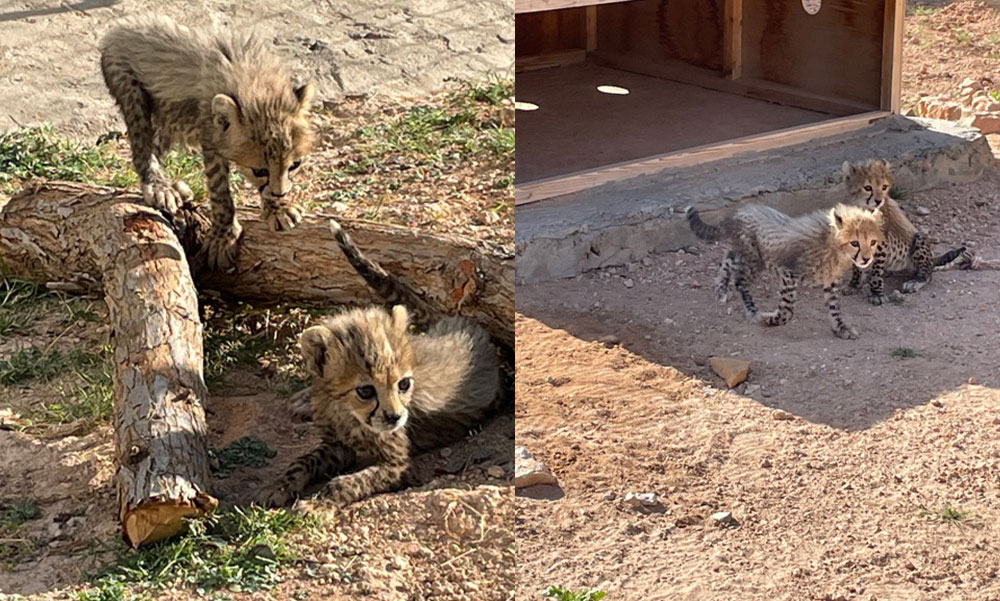
CCF Somaliland staff have been working around the clock to care for these cubs. As mentioned in their stories, many of them came to us with serious health problems because they were illegally taken from their mothers in the wild at such young ages and kept in poor, inhumane conditions. Each individual cub needs special attention, especially to stabilize them when they first arrive—ranging from administering fluids, electrolytes and other medications to carefully monitoring their diets. The Somaliland team is dedicated to the care and well-being of these cheetah cubs, and although it is challenging work, it is extremely rewarding.
With the intake of these 11 cubs, CCF is now caring for 65 cheetahs in Somaliland
Related Reading
-
June 12, 2024
Continuation Assigned Task is National Obligation -
March 8, 2023
Support the Cheetah Rescue and Conservation Centre

